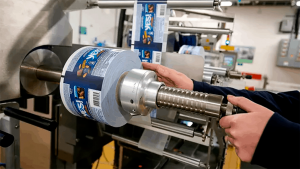
resistant packaging
Nestlé has created a material capable of replacing plastic packaging. It's recycled paper with a polymer coating that makes it waterproof and tough enough to go through the production line, transport and store it for nine months. According to the company, the recycled material degrades after six months in the ocean.
The company did not disclose the investment disbursed to develop this new technology and said it is too early to assess what the impact on the environment will be of switching from plastic to paper. The company says it does not intend to patent the innovation, allowing other companies to adopt the material from April 2020.
“It's not in our interest to hold on to that,” Jas Scott de Martinville, Nestlé's world leader in confectionery research and development, tells the Financial Times. “We want the industry to use paper.”
Global market
For now, the new packaging is only used in YES! branded cereal bars, sold in several European countries and which should soon reach the global market. For the material to be viable, the company had to adapt the existing machines and the speed of the production line. The changes were minor, but increased costs. The bar costs £1,20 (around R$5,60) – 50% more than its competitors.
The company said it will not patent the innovation, allowing other companies to adopt the material from April 2020.
For Erwin Reisner, head of the Circular Economy Center for Plastic Waste Disposal at the University of Cambridge, UK, Nestlé's new technology is an "important step". “This will put pressure on other manufacturers,” he tells the Financial Times. In addition to alternatives, he stressed, however, that it is necessary to make plastic reusable and recyclable.
sustainable movement
A third of the packaging for all Nestlé products is made of plastic. Of this total, the company does not reveal how much is recycled. The food giant has set a goal for 2025 for all of its packaging to be reusable, recyclable and biodegradable. The movement against plastic has become commonplace at companies like Unilever, McDonald's and Lego.
According to a 2017 study, an estimated 8,3 tonnes of plastic have been produced since World War II. About four-fifths were disposed of as waste, while only 9% was recycled.
Source: https://epocanegocios.globo.com/Empresa/noticia/2019/07/nestle-cria-embalagem-resistente-para-substituir-plastico.html

Leave a Comment